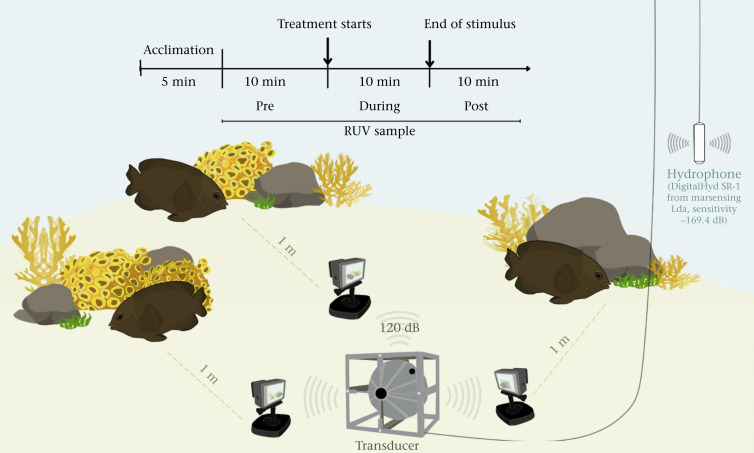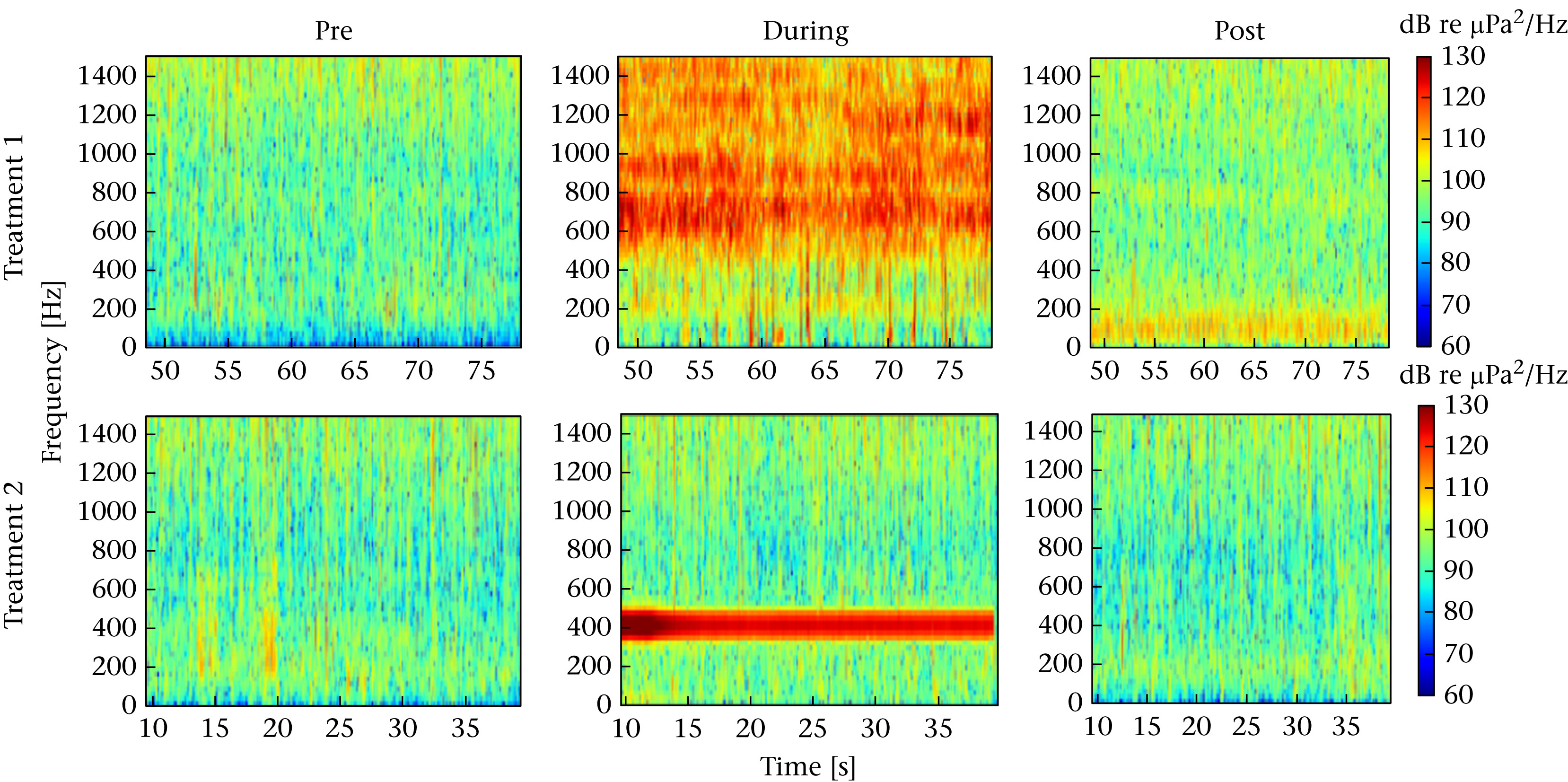

In a recent study entitled “Exposure to anthropogenic noise affects feeding but not territory defence in damselfishes”,Aléxia Lessa, Bioacoustics and Fish Ecology Lead at Diatom, was awarded the Geographical Award 2025 by the Animal Behavior Society in partnership with the Association for the Study of Animal Behaviour and with the support of Elsevier. This award recognises the best scientific articles published in Animal Behaviour, with a special category dedicated to authors from developing countries.
The study was co-authored by Fabio Xavier, Bioacoustics and AI Lead at Diatom, and Viviane Barroso, UnderwaterAcoustics Expert and Data Scientist at Diatom.

What the research found
Anthropogenic noise is a recognised global pollutant with documented effects on many marine organisms. However, its consequences for reef fishes in natural conditions are still poorly understood. To address this gap, the authors carried out in situ experiments with the endemic damselfish Stegastes fuscus along the Brazilian coast.